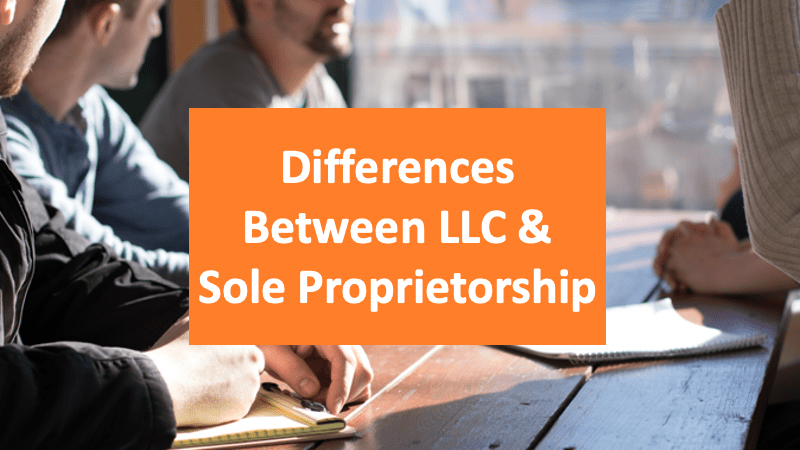The Main Differences Between an LLC and Sole Proprietorship
Table of Contents

America’s economy is brimming with small businesses. According to 2021 statistics from USChamber.com, there are around 31.7 million in total, which make up 99.9% of all US businesses. Plenty of companies exist in the form of limited liability companies (LLCs) and sole proprietorships (SPs), as both provide certain benefits. If you’re a new business owner, you might be wondering whether it would be better to be taxed as an LLC or a sole proprietorship.
Keep reading to learn about the main differences between the two.
Business Structure Basics
What’s an LLC?
A company or organization’s business structure refers to the legal structure recognized in a given jurisdiction. Legal structure determines the activities a business take. For example, raising capital, obligations, as well as the taxes the company owes. The four main forms of US business structures consist of partnership, corporation, sole proprietorship, and limited liability company. That said, many small businesses favor the latter half for their flexibility and simplicity.
An LLC provides personal liability protection to business owners by separating their business assets from their personal assets. The IRS calls owners of an LLC, members. There is no limit to how many members an LLC can have. Plus, most states also permit single-member LLCs with only one business owner. An LLC can be treated either as a corporation or a partnership depending on the decision of the members. We will discuss this further on in the article.
Applying for an LLC is a simple and inexpensive process. After deciding on a company name and submitting the relevant registration papers, select a registered agent and create your LLC’s operating agreement. LLC.org highlights another important benefit you get from an LLC is an employee identification number or EIN. An EIN is useful for tax reporting, opening business bank accounts, hiring employees, and building your business credit. Applying for an LLC will cost you around $1000.
What’s Sole Proprietorship?
A sole proprietorship on the other hand is a unified identity between a business and its owners. BusinessNewsDaily.com explains that the Internal Revenue Service automatically classifies any business started by an individual into this structure, which will then require you to take all legal responsibility in the event of financial troubles or charges. Some professionals such as chefs, accountants, writers, editors, personal trainers, and others, also form sole proprietorships to offer their services to clients.
It’s also quite easy to get a sole proprietor business up and running. After deciding on a business name, you then file for a doing-business-as-application in your respective state. Similar to applying for an LLC, you’ll also be needing an EIN to open a business bank account and secure the proper paperwork. Applying for sole proprietorship will cost you anywhere from $5 to $100 – again, this depends on your state.
What Are Their Differences?
An LLC exists separate from its members. LLC members, or rather owners, are not personally responsible for business debts and liabilities. On the other hand, a sole proprietorship is an unincorporated business owned and run by one person who is entitled to all the profits of the business. However, they will also be responsible for all the liability. Both LLCs and sole proprietorships are entitled to pass-through taxation – but for SPs, you won’t have to file as a corporation to benefit from this.
In that sense, an LLC is a hybrid structure that combines the characteristics of a partnership and a corporation. In our post on ‘Delware LLC Benefits’ blog post, we also highlight that you would have to be careful about keeping bank records and funds separate from your personal assets to fully utilize your liability protection. As for SPs, you won’t have to worry about mixing them, because they’re regarded as a united entity.
Conclusion
So, are LLCs or SPs better? It really is a case-to-case basis, because it also depends on the life stage your business is in. For instance, many business owners, freelancers, and consultants start out as sole proprietorships. Once your business grows, you might need to start looking into registering as an LLC to obtain legal protection, and tax flexibility and improve your business structure. That said, both are great fits for small businesses. But if you see yourself expanding your business long-term, then prepare your LLC paperwork ASAP.
Was this article helpful?
We are a team of writers and contributors with a passion for creating valuable content for small business owners, self-employed, entrepreneurs, and more.
Feel free to reach out to use as support@falconexpenses.com





